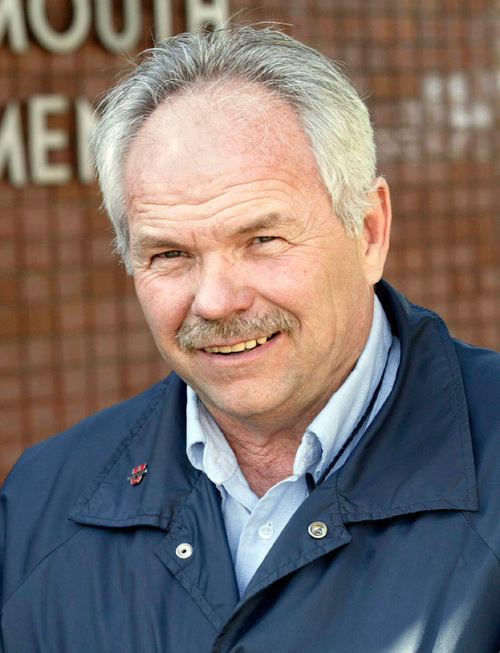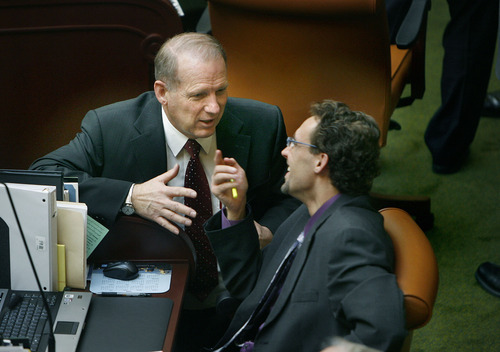This is an archived article that was published on sltrib.com in 2010, and information in the article may be outdated. It is provided only for personal research purposes and may not be reprinted.
As times are tough everywhere, Utah legislators may soon face the unpleasant task of voting whether to cut their own pay by more than half — at least for those members who live along the Wasatch Front.
Rep. Ron Bigelow, R-West Valley City, and outgoing House chairman of the Executive Appropriations Committee, says he is preparing a bill that would do away with automatic "per diem" allowances that are designed to cover lawmakers' food and lodging costs during their 45-day session.
All members — whether they live at home or not during the session — are currently paid $156 a day for per diem allowances ($61 for food and $95 for lodging) without the need to present any receipts.
Those payments are actually a third more than the $117 daily salary of legislators.
Bigelow is proposing to reimburse lawmakers only for what they show they actually spend with receipts, up to the current limits.
"Right now, everyone gets per diem automatically. For those of us who live at home, it's just extra income, and we have to report it," Bigelow said. "That creates a type of unequal treatment for those who have to travel and use the per diem for that."
Bigelow said the main reason he is pushing the idea is "to level the playing field [financially] between those who live along the Wasatch Front and those members who must travel" long distances to the Capitol.
"I'm going to get some push-back on this one," he said, although he adds that he expects leaders and most members will support it.
"But I suspect that it is a key income source for some," and they will not be happy, he said.
His move, for example, could reduce the income over the 45-day general session (when members are paid for each day including weekends) from $12,285 now to $5,265 for Wasatch Front members.
(Members are also now automatically paid $117 a day for monthly interim meetings and the $61 per diem for food — but members must present receipts for the $95 lodging allowance for those interim meetings. They also are paid 50 cents a mile in mileage allowance.)
To help reduce the bill's sting — and to increase its chances of passage — Bigelow said he may not make the change effective for another two years, until after the next election.
He said that way, House members would need to stand for another election before the change would come, "and they would have time to prepare" for any financial changes needed or perhaps even retire if they could not afford to serve.
Rep. Neal Hendrickson, D-West Valley City, a school bus driver, said Bigelow's bill would hurt him, and possibly force him not to run again.
He said the current income (including per diem) "is about a wash for the days that I have to take off without pay" from his normal job. With the change, "It wouldn't be a wash." Hendrickson said he might have to work full-time instead of serving as a legislator.
Still, Henrickson predicts, "I think we [lawmakers] would be inclined to vote for it so we wouldn't look bad" in tough times. "There's a feeling that we make a lot of money doing this. But we don't really for the amount of time that we have to put into it," Hendrickson said. —
Current pay for legislators
Lawmakers currently receive the following during their 45-day session (including four weekends), whether they live at home or not in that time:
$117 a day for salary
$61 in "per diem" for food
$95 a day for lodging
50 cents a mile for travel





